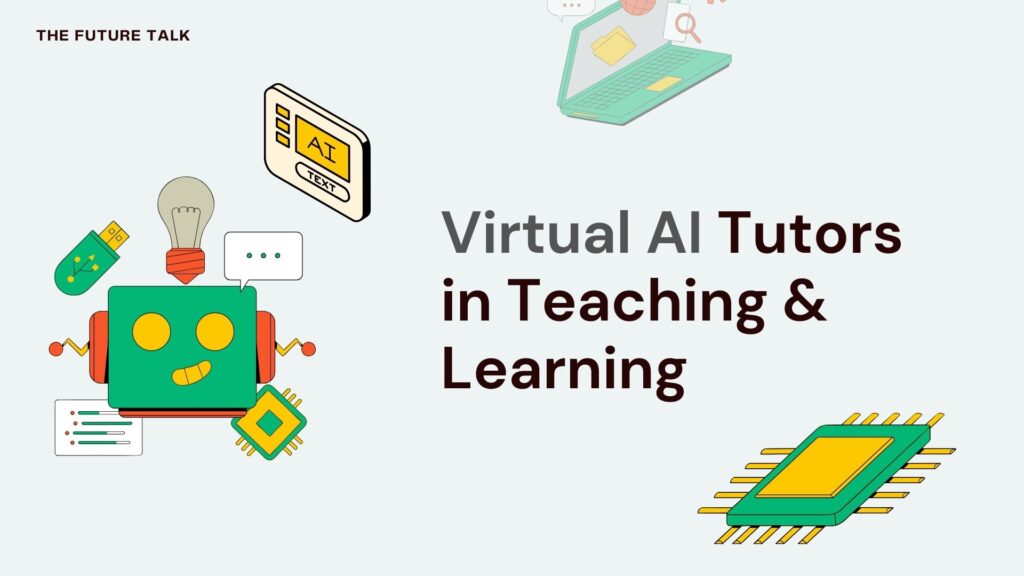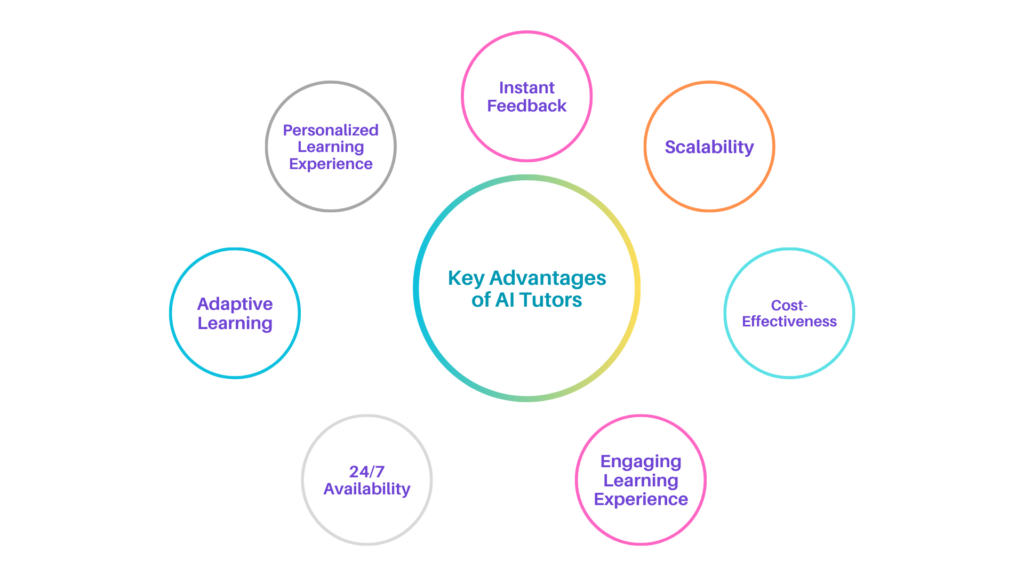
Education, in recent years, has seen a significant transformation, largely fueled by advancements in technology. One of the most promising advancements is artificial intelligence, particularly the use of Virtual AI Tutors. These are typically digital tools that have the potential to transform learning and instruction like never before.
If you are an educator or someone interested in the future of learning, this article is for you. We will explore how Virtual AI tutors are transforming online education, whether virtual teaching assistants are the need of the hour, and how popular AI tutors are worldwide.
Virtual AI Tutors: The Future of Education
Imagine a learning journey with Artificial Intelligence (AI), helping you at every step. This is now possible with AI virtual tutors. Virtual AI tutors use the capabilities of machine learning (ML), natural language processing (NLP), and data analytics to provide tailored support to learners, addressing their unique needs and challenges.
In 2023, Amity University Online, the e-learning platform of Amity University, launched an AI Professor for online higher education, named Professor AMI. According to the report, Professor AMI is powered by Chat-GPT-4 and Open AI-driven technology. It has been designed to provide Amity Online students with a cutting-edge, customized learning experience based on their strengths, areas for improvement, and learning preferences.
AI tutors can generate customized content, analyze student performance in real time, and provide immediate feedback, ensuring a more engaging and effective learning process.
Also Read: The Double-Edged Sword: The Impact of AI on Academic Integrity
AI Tutors Transforming Education
AI tutors are poised to transform education. These virtual instructors, which use AI, offer personalized learning experiences, real-time assistance, and data-driven insights that can profoundly enhance the educational journey for students worldwide.

Personalized Learning Experience
One and foremost benefit of virtual AI tutors is their capacity to provide personalized learning experiences to students. Traditional classrooms frequently fail to suit individual students’ different learning styles and paces. However, AI tutors may analyze a student’s performance, learning patterns, and preferences to personalize instructional content to their unique needs.
This individualized approach guarantees that each student receives the right amount of challenge and assistance, resulting in a more successful and enjoyable learning experience.
Real-Time Assistance and Feedback
Immediate feedback is critical in the learning process as it allows students to understand their mistakes and learn from them quickly. Virtual AI Tutors excel at delivering real-time support and giving immediate feedback on assignments, tests, and even interactive lectures. This quick response can help students avoid misunderstandings or misconceptions, resulting in a smoother and more efficient learning process.
Data-Driven Insights for Educators
Virtual AI tutors not only help students but also educators, providing crucial data-driven insights. By evaluating student performance data, AI can detect patterns and trends that human teachers may miss. For example, an AI tutor can notice when a specific idea repeatedly confuses instructors and recommends curriculum changes or additional resources to close the gap.
Educators can utilize these insights to make informed judgments regarding their teaching tactics, tailor their lesson plans, and give targeted interventions for students who require additional assistance. This data-driven approach guarantees that instruction is more effective and that students have the resources they require to succeed.
AI Tutors can also help in enhancing engagement and motivation, accessibility and inclusivity, and preparing students for the future.
Also Read: The New Academic Horizon: How GenAI Could Disrupt Higher Education?
Challenges and Considerations
While AI tutors promise a lot to transform education by offering personalized guidance, real-time feedback, and 24/7 availability, they also present certain challenges that must be addressed.
Data Privacy and Security
The use of AI tutors entails gathering and evaluating large amounts of student information. It is critical to ensure the security and confidentiality of this information. Educational institutions and developers must take rigorous precautions to protect student data and adhere to information security standards.
Reliance on Technology
There is a chance that students will grow overly reliant on AI Tutors, which could impair their ability to think critically and solve problems. It is imperative to find a balance between promoting free learning and critical thinking and using AI technologies.
Content Quality
The quality of the content provided by AI Tutors determines their viability. It is fundamental to ensure that the content is accurate, current, and modified in accordance with educational standards. Working together, educators and AI developers can maintain high-caliber educational materials.
Implementation Considerations
- Interdisciplinary Collaboration
- Continuous Improvement and Adaptation
- User Training and Support
Also Read: Is Metaverse Possible in Education?
Conclusion
Virtual AI tutors are revolutionizing the educational experience by delivering personalized learning pathways, instant feedback, and data-driven insights. They can democratize education and equip students for a world where technology is pervasive by increasing engagement, accessibility, and diversity.
But as the education sector is on the verge of this transformation, one question arises how will educators, students, and institutions harness the power of AI in education? Could the rise of AI tutors reshape the very essence of learning itself? Stay connected as we explore these possibilities and others.
Stay tuned to The Future Talk for more such interesting insghts.
Good
Very informative piece of content.